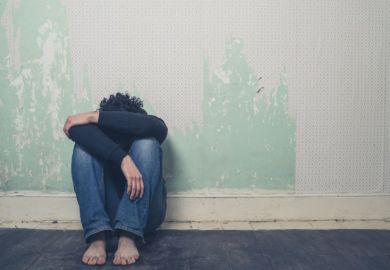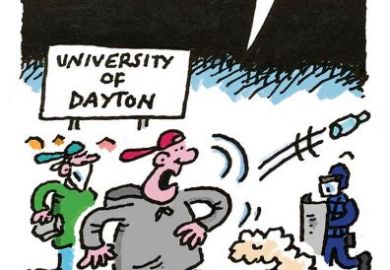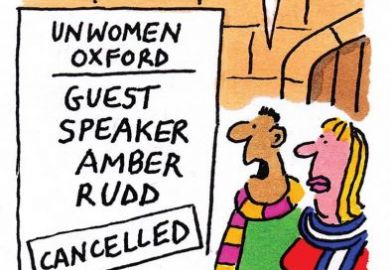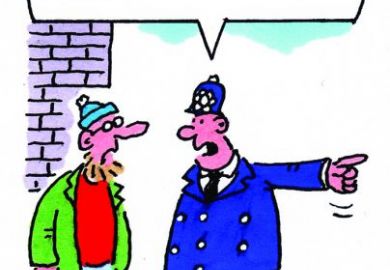
Concerns over the way that the UK has dealt with the Covid-19 outbreak and the scaling back of services on campuses is leading many Chinese students to seek to return to their home country, according to a report this week. An article in The Guardian said that a group of students studying at various UK universities even tried to club together for a charter flight back, although the plan did not come to fruition – possibly due to China bringing in new flight restrictions. One of the students who planned to take the flight – who has now managed to find a standard ticket home − said he wanted to go back “because China has taken effective measures against the virus” and he had “full confidence in Chinese medical care”. Elsewhere, Chinese students are taking increasingly convoluted routes to reach home via other destinations such as African countries, according to the article.
The UK government is set to impose strict caps on student numbers at each university in England in an attempt to avoid a free-for-all on admissions. A government source said that every university would face limits on the number of UK and European Union undergraduates it could admit for the academic year starting in September, The Guardian reported on 29 March. The caps would prevent the most prestigious universities hoovering up domestic students to fill their courses, leaving other institutions in precarious financial positions. If introduced it would be the first limit on student numbers since 2015. It would mean that students currently going through the application process would have their choices restricted, with some unable to attend universities at which they have been offered a place.
Graduation ceremonies planned for the spring and summer are increasingly being cancelled or postponed in the UK and further afield as it becomes clear that the crisis is unlikely to be over in the near future. The universities of Edinburgh, Durham and East Anglia are among those that have told students that their usual graduation ceremonies would not take place as planned, while others have announced that events will be postponed or combined with autumn ceremonies instead. Meanwhile, at New York University, medical students have been told that they can graduate early so they can help in the frontline battle against the virus, according to a report in The Independent. An email from NYU’s Grossman School of Medicine said those eligible to graduate might be able to start working in a matter of days to help the city in its fight against the pandemic.
A suggestion that student accommodation in Australia should be closed down as part of measures to tackle the spread of the virus has been criticised as having the potential to make the situation worse, The Australian reported. A committee made up of chief medical officers from the country’s regional governments said in their advice to federal decision-makers that consideration should be given to the move. But Phil Honeywood, who chairs a body advising the federal government over the outbreak’s impact on universities, said it would be counterproductive. “If this recommendation is adopted it will have dangerous consequences, effectively throwing 40,000 young people on to the streets unsupervised, and accelerate the transmission of the virus,” he said, adding that a significant number were international students with no alternative place to stay.
The University of Rochester has agreed to pay $9.4 million (£7.6 million) to settle a long-running sexual harassment dispute. The legal action was brought in 2017 by nine former academics and students who had accused the New York-based institution of discrimination and retaliating against them for complaining about a professor’s conduct, according to The Chronicle of Higher Education. The plaintiffs had complained about what they said was a pattern of sexual harassment by T. Florian Jaeger, a tenured professor in the department of brain and cognitive sciences. In 2018, an outside investigation largely exonerated Professor Jaeger of violating Rochester’s sexual misconduct policies but found him responsible for “unprofessional and inappropriate behaviour”, including talking and joking about sex and engaging in consensual intimate relationships with students at a time when they were discouraged but not banned. He returned to teaching in 2018 after a semester of paid academic leave.
An academic whose research specialism is doping in sport has been suspended from cycling after testing positive for a number of banned substances. John Gleaves, a professor of kinesiology at California State University, Fullerton, was found to have violated an anti-doping rule at the Masters Track National Championships in August 2019, the US Anti-Doping Agency announced. Professor Gleaves was suspended for four years from 31 August 2019, the date his positive sample was collected, and disqualified from competitive results on and after that date, including forfeiture of any medals, points and prizes. Professor Gleaves, who was co-director of the International Network for Doping Research from 2012 to 2019, was an expert witness for Lance Armstrong during the US government’s whistleblower fraud lawsuit brought by cyclist Floyd Landis.
Register to continue
Why register?
- Registration is free and only takes a moment
- Once registered, you can read 3 articles a month
- Sign up for our newsletter
Subscribe
Or subscribe for unlimited access to:
- Unlimited access to news, views, insights & reviews
- Digital editions
- Digital access to THE’s university and college rankings analysis
Already registered or a current subscriber? Login



